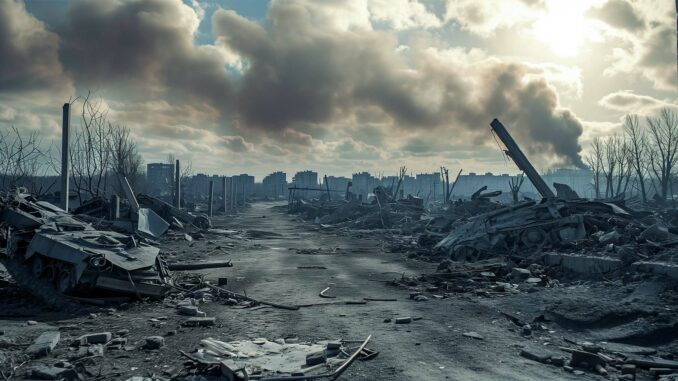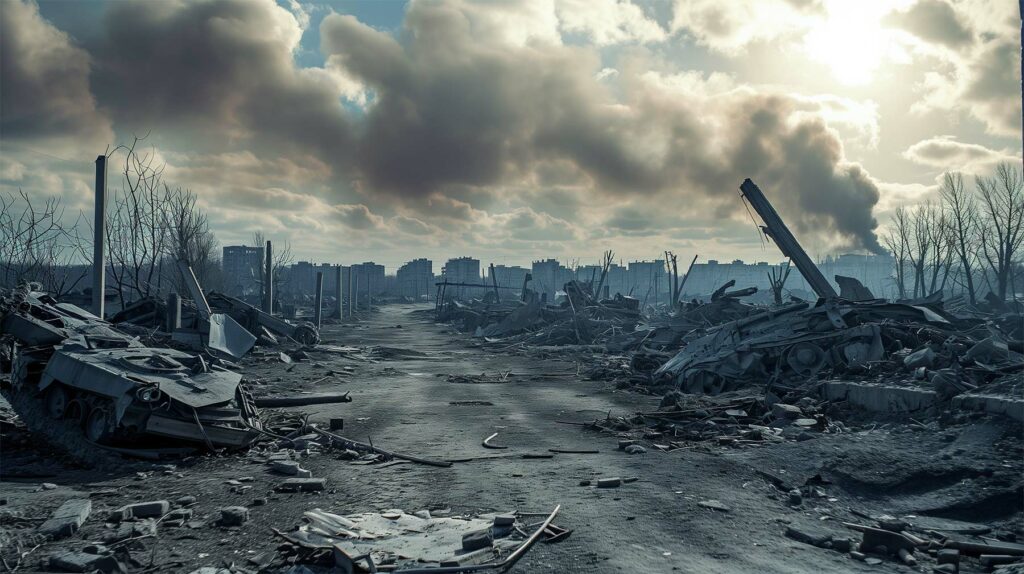
Russia is intensifying its attacks on the Ukrainian city of Kharkiv, aiming to make it uninhabitable in order to declare a superficial victory, evoking Roman tactics of creating “pacified deserts.”
The recent Russian attacks on Kharkiv aim to leave the city deserted, a strategy that includes cutting off electricity, water, sanitation systems, and reliable food supplies. The goal is to force the population to flee, thus allowing Russian forces to claim victory. This approach, encapsulated by the phrase “to create a desert and call it peace,” has its roots in the strategies of ancient Rome, which were designed to pacify hostile regions.
Historical and Strategic Context
Before the Russian invasion, Kharkiv, also known as Kharkov, was Ukraine’s second-largest city with a population of about 1.5 million. Located less than fifty kilometers from the Russian border and the province of Belgorod, this geographical proximity makes Kharkiv particularly vulnerable to Russian territorial ambitions, exacerbated by the dissolution of the Soviet Union in 1991, after which Kharkiv remained Ukrainian while Belgorod stayed Russian.
Methodology of Destruction
The current Russian offensive on Kharkiv aims to replicate a scenario similar to that seen in World War II, where many German and Japanese cities were reduced to ruins. Today’s tactics employed by Russia aim not only to physically destroy the city but also to eradicate any form of economic and social life by destroying vital infrastructure, thus pushing the population to flee.

Humanitarian and Geopolitical Implications
The Russian strategy in Kharkiv can be seen as an attempt to create a “buffer” or depopulated zone between Russia and Ukraine, thereby minimizing the risk of direct counterattacks on Russian territory. However, this approach has disastrous humanitarian consequences, exacerbating a migration crisis and increasing the suffering of civilians.
Long-term Consequences
The damage inflicted on Kharkiv and the collective memory of these atrocities could deeply embed themselves in the Ukrainian psyche, much like the Holodomor of 1930-33, where the Soviets confiscated Ukrainian food productions to finance the industrialization of Russia, causing about ten percent of the Ukrainian population to die from famine. This historical memory could fuel lasting resistance and animosity towards Russia, shaping geopolitical relations in the region for generations to come.
The situation in Kharkiv is a poignant example of how military strategies can have profound and lasting impacts not only on geopolitics but also on humanitarian grounds. Destruction as a war tactic, although aimed at securing a quick victory, sows the seeds of prolonged conflict and regional instability. Decision-makers and the international community must therefore carefully weigh the consequences of such strategies, not only for the immediate belligerents but for global security and stability.
War Wings Daily is an independant magazine.